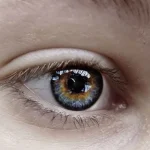Do you wish you could see better? There are a handful of behaviors and routines that can keep your eyes healthy so to maintain the vision you have. Some of the tips may also help temporarily relieve poor vision symptoms such as eyestrain or blurriness, which actually can help you see better.
Eat Healthy for a Healthy Eye
Good eye health starts with healthy food on your plate. Some nutrients like zinc, lutein, omega-3 fatty acids and Vitamins C and E can help you to keep your eyesight keen as you get older, warding off age-related vision problems like cataracts and macular degeneration. A well-balanced eye diet can help you to stay at a healthy weight, lowering your odds of obesity, type 2 diabetes, and other diseases that can cause vision problems.Here are some of the foods for healthy eyes to include in your diet:
Fish
Cold-water fish such as salmon, tuna, and mackerel are rich in omega-3 fatty acids, which can help you to protect against dry eyes, macular degeneration, and cataracts. If you don’t eat fish, you can get a good supply of omega-3 fatty acids by taking fish oil supplements or other vegetarian supplements that contain flaxseed or black currant oil.
Eggs
They are a good source of nutrients that promote eye health and function, including Vitamin A and lutein.
Leafy greens
Leafy greens such as spinach, arugula, kale, and watercress are full of two types of carotenoids i.e.; lutein and zeaxanthinthat can help to prevent or stem the development of cataracts and macular degeneration. Leafy greens also contain other vitamins and minerals that are good for your eyes, including iron, magnesium, calcium, and vitamins A and K.
Legumes
Lentils, kidney beans, and black-eyed peas are good sources of bioflavonoids and zinc, which helps to keep your eyes hydrated and lower the risk of developing cataracts and macular degeneration.
Quit Smoking or Never Start
Smoking has been known to cause major health problems like heart disease and cancer, but many people don’t know that smoking can also affect your vision. Here are some facts on smoking and eye disease to consider if you’re a smoker or know someone who smokes and concerned about eye health:
- Double is the chance of forming cataracts for people who smoke as compared to non-smokers.
- Smokers are three-times more likely to develop age-related macular degeneration compared with people who have never smoked.
- Smokers are more likely to have uveitis, a serious eye disease that causes inflammation of the eye’s middle layer and can result in a complete vision loss.
- Smokers are nearly twice as likely to suffer from dry eyes, which can lead to itchiness and redness.
- Smoking while pregnant can increases the chance of fetal and infant eye disorders, including crossed eyes (strabismus) and underdevelopment of the optic nerve.
- Quitting smoking and avoiding second-hand smoke can have a positive impact on your long-term eye health.
Reduce Eye Strain
Staring at a computer or phone screen for too long can cause physical discomfort known as “digital eye strain” that includes such symptoms as:
- blurry vision,
- trouble focusing at a distance,
- dry eyes,
- headaches.
Many individuals suffer some of these symptoms after the use of acomputer or phone screen for a longer time than two hours at a time. Unfortunately, many of our day to day tasks involve a computer or smartphone, so the chances of experiencing digital eye strain are quite high.Read Also: Best Foods for Eye Health
Article: Want to improve your vision naturally, here’s what you should know
Author: Dr JB Singh | Jan 10 2019 | UPDATED 02:00 IST
*The views expressed here are solely those of the author in his private capacity and do not in any way represent the views of Centre for Sight.





